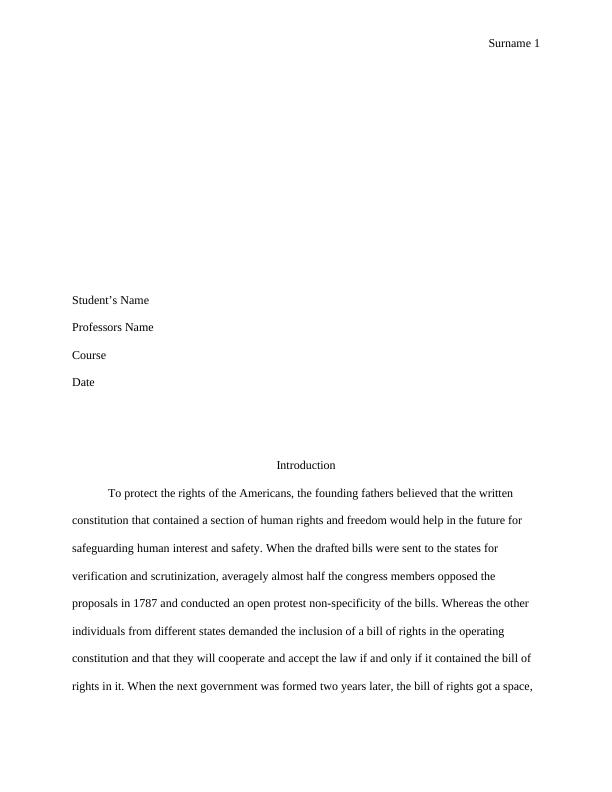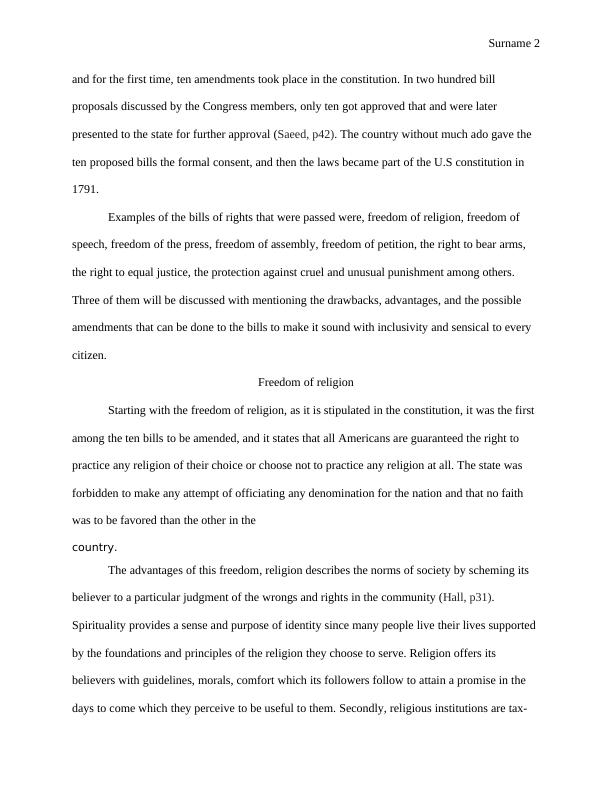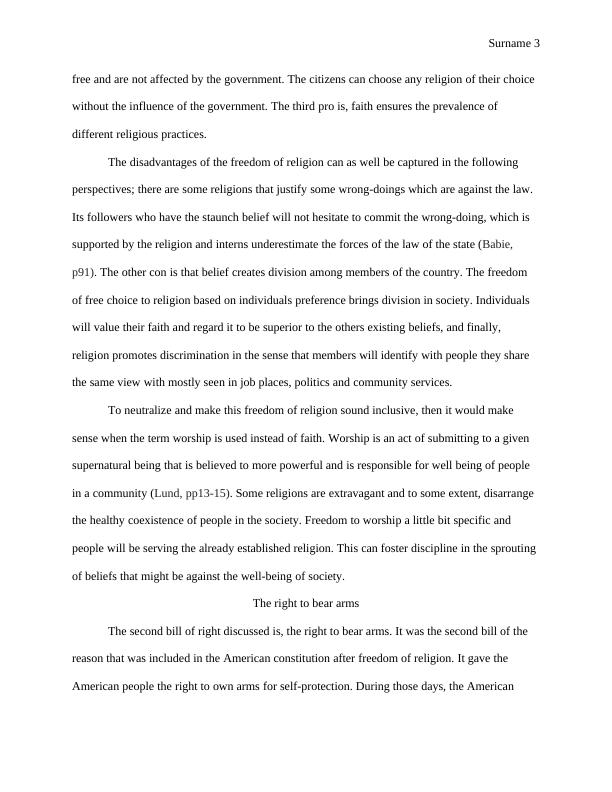Analysis of Three Bills of Rights in the US Constitution
Discuss the benefits and drawbacks of three freedoms in the Bill of Rights and propose amendments to each freedom.
9 Pages2474 Words186 Views
Added on 2022-11-13
About This Document
This article analyzes the advantages, disadvantages, and possible amendments of three bills of rights in the US Constitution: freedom of religion, the right to bear arms, and the right to equal justice.
Analysis of Three Bills of Rights in the US Constitution
Discuss the benefits and drawbacks of three freedoms in the Bill of Rights and propose amendments to each freedom.
Added on 2022-11-13
ShareRelated Documents
End of preview
Want to access all the pages? Upload your documents or become a member.
Civil Liberties and Tort Law.
|7
|1473
|78
Understanding the Media's Role
|15
|4341
|230
Bill of Rights America Case Study 2022
|5
|1089
|20
American History: Reconstruction and Changes in Society
|4
|766
|123
Founding Fathers and their Views on Religious Liberty
|6
|1871
|240
The Bill of Rights - Essay
|6
|1121
|80



